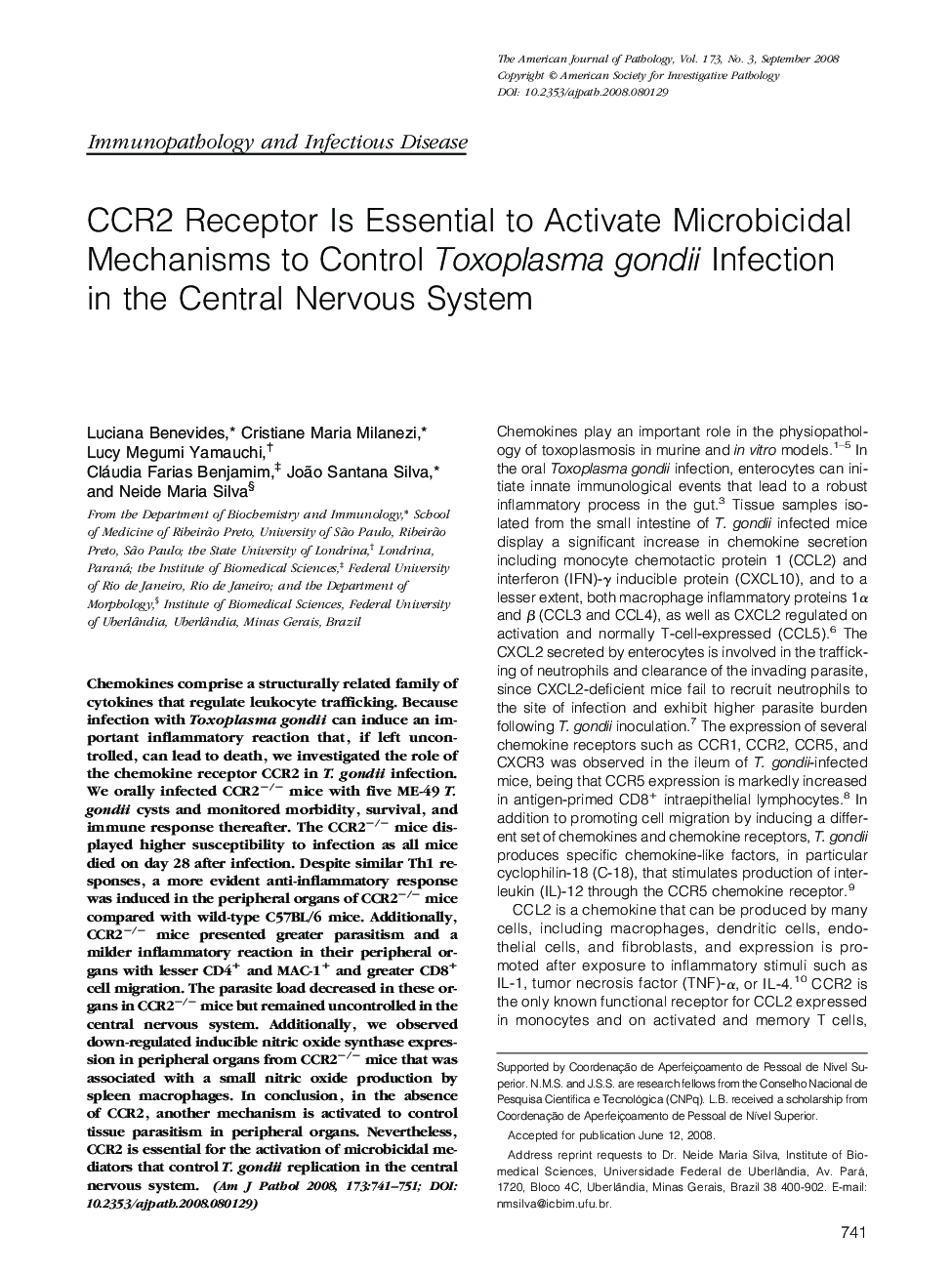| Article ID | Journal | Published Year | Pages | File Type |
|---|---|---|---|---|
| 5938320 | The American Journal of Pathology | 2008 | 11 Pages |
Abstract
Chemokines comprise a structurally related family of cytokines that regulate leukocyte trafficking. Because infection with Toxoplasma gondii can induce an important inflammatory reaction that, if left uncontrolled, can lead to death, we investigated the role of the chemokine receptor CCR2 in T. gondii infection. We orally infected CCR2â/â mice with five ME-49 T. gondii cysts and monitored morbidity, survival, and immune response thereafter. The CCR2â/â mice displayed higher susceptibility to infection as all mice died on day 28 after infection. Despite similar Th1 responses, a more evident anti-inflammatory response was induced in the peripheral organs of CCR2â/â mice compared with wild-type C57BL/6 mice. Additionally, CCR2â/â mice presented greater parasitism and a milder inflammatory reaction in their peripheral organs with lesser CD4+ and MAC-1+ and greater CD8+ cell migration. The parasite load decreased in these organs in CCR2â/â mice but remained uncontrolled in the central nervous system. Additionally, we observed down-regulated inducible nitric oxide synthase expression in peripheral organs from CCR2â/â mice that was associated with a small nitric oxide production by spleen macrophages. In conclusion, in the absence of CCR2, another mechanism is activated to control tissue parasitism in peripheral organs. Nevertheless, CCR2 is essential for the activation of microbicidal mediators that control T. gondii replication in the central nervous system.
Related Topics
Health Sciences
Medicine and Dentistry
Cardiology and Cardiovascular Medicine
Authors
Luciana Benevides, Cristiane Maria Milanezi, Lucy Megumi Yamauchi, Cláudia Farias Benjamim, João Santana Silva, Neide Maria Silva,
